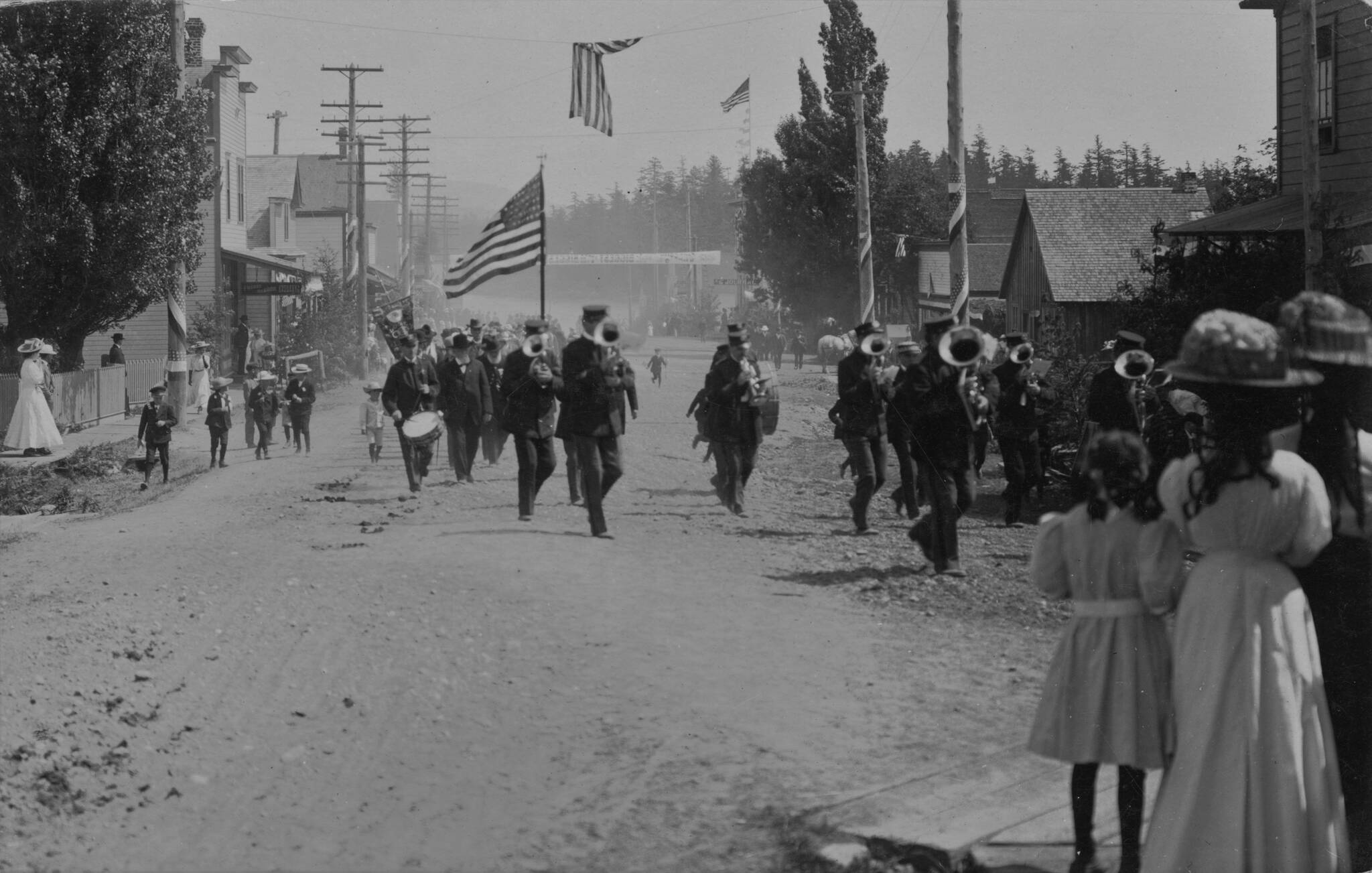A segment of “Underpinning” by Carolyn Reed, printed with the permission of her niece, Susan Reed. “Underpinning” is Caryolyn’s memoir of growing up on San Juan Island. Below is her description 4th of July afternoon in 1916.
At two ‘o clock the races and games were scheduled to start on Spring Street and the crowd was forming already along the sidewalks.
Each year the businesses had sponsored the events, donating the prizes, but in 1916 the Japanese colony of cannery workers requested the responsibility for the Fourth of July stunts.
Efficient and smiling, the small and neat men called the events, started each race, judged the finish, and awarded the prizes which they had desired to furnish as well.
An egg race in which contestants carried an egg on a spoon lashed to a long stick handle, caused merriment. The eggs turned out to be hard-boiled, but the runners found that out only from experience. If the egg dropped from the spoon, it must be scooped up with the spoon, never touched with the hands after the start and the distance was one block between two street intersections. There followed a gunny sack race and a horse car race as cannery fire teams competed.
I was large-boned and never a swift runner, so I tried to choose a contest depending more on skill than speed for my try at the prize. When the girls’ egg race was called, I joined the line at the start. Too many of us started. We got in each other’s way. In the fever of straining toward the finish, my feet intercepted each other, and I stumbled onto my face at the halfway point in the middle of the street.
The pounding feet and swishing dresses swept on in a flash and I lay there alone, face down, humiliated, hurt, and drawn up into a little white heap. In the hush, I heard my mother’s voice speaking to Father on the sidelines: “Oh, Conner, it’s Caroline!” Then came the patter of running footsteps from either side of the street. Two men reached me at the same time, lifting me to my feet. One was Father and he thanked the stranger, saying I was his little girl.
The skin was gone from the underside of my raw and dripping elbows. Father held my arms up so blood would not drip on my dress, and he led me to the sidewalk. Long scratches extended from the base of my palms up the underside of my forearms. Oiled black soil and bits of gravel were ground into them. Bits of torn skin and drops of blood dangled. The flesh over my knees was pitted with gravel, my stockings shredded, my white dress black with dust from hem to throat. Mother brushed off the dust, but oil had penetrated the cotton fabric, leaving a brown stain.
I had not wept yet but the sympathy of those about me brought the tears and I had to bite my lips to keep them back. We were almost in front of the bank building steps, so Father took me up to his office to wash the raw spots with anesthetic and dry them tenderly with gobs of cotton. Then he sprinkled on a dressing that staunched the flow of clotting blood. In a few minutes, I was back at curbside with only a thin bandage on each elbow.
A lithe, slender Japanese man came around behind us in the crowd, and tapped me on the shoulder. With a great grin, he thrust three small packages into my hands. Three prizes for falling down! I could never have won standing up. A glass cube filled with aromatic tooth powder, a cotton scarf painted in dark blue with a Japanese scene and printed with black Japanese writing-folded and fitted into a brilliantly colored paper case—and a bamboo picnic knife and fork set in an oiled paper case: These were my consolations.




